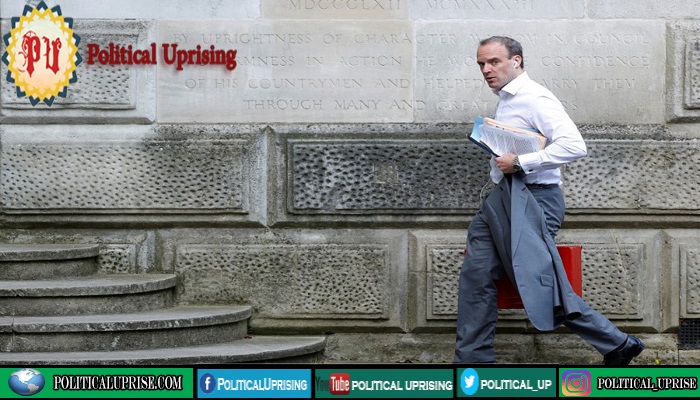British foreign minister defended the government’s careful loosening of the coronavirus lockdown, saying it was the “right step to be taking” at this time.
Prime Minister Boris Johnson has come under fire from some scientists for easing a lockdown put in place 10 weeks ago, with several saying it was a premature and risky move in the absence of a fully functioning system to track new outbreaks.
Britain has one of the world’s highest death rates from COVID-19 and the government says it is easing the stringent lockdown cautiously to balance the need to restart the economy while also trying to prevent another increase in the number of infections.
“We are confident that this is the right step to be taking at this moment in time,” Raab said. “We are taking those steps very carefully, based on the science but also based on our ability now to monitor the virus.”
From Monday, up to six people will be able to meet outside in England, some school classes will restart, elite competitive sport can resume without spectators and more than 2 million people who have been “shielding” will be allowed to spend time outdoors.
British PM resists calls to sack senior adviser
Housing minister Robert Jenrick said the government was “reasonably confident” the easing would not boost the rate of infection, but some pictures of people apparently flouting the new rules has caused concern.
England’s deputy chief medical officer, Jenny Harries, emphasised the need for people to remain on their guard.
“This is a really, really critical time. So where we are seeing (that) government is easing measures, the public really, really need to stick to those measures,” she told a news conference.
Johnson, meanwhile, is under pressure from some in his governing Conservative Party and businesses to start reopening the economy after spending billions to help to protect companies and workers from the impact of the coronavirus crisis.
At the heart of the strategy to ease the lockdown is a system to test and trace those people who have come into contact with confirmed cases of COVID-19.
On Sunday, the government said it had met its 200,000 capacity testing target, including the means for 40,000 antibody tests a day, which health minister Matt Hancock described as “an important milestone”.
Boris Johnson will not face criminal inquiry over US businesswoman
Ministers also say the tracing system is already working, though some scientists warned that it is too early to say whether it is fit for purpose and fear that it might not be able to cope if the lockdown easing increases the transmission rate.
Britain has recorded more than 38,000 deaths from confirmed COVID-19 cases. The Office of National Statistics and other sources of data put the figure of fatalities from suspected and confirmed cases at 48,000.
Peter Openshaw, a member of the New and Emerging Respiratory Virus Threats Advisory Group and who sits on the government’s scientific advisory group, said he shared other scientists’ “deep concern”.
“I think unlocking too fast carries a great risk that all the good work that has been put in by everyone to try to reduce transmission may be lost,” he said.



